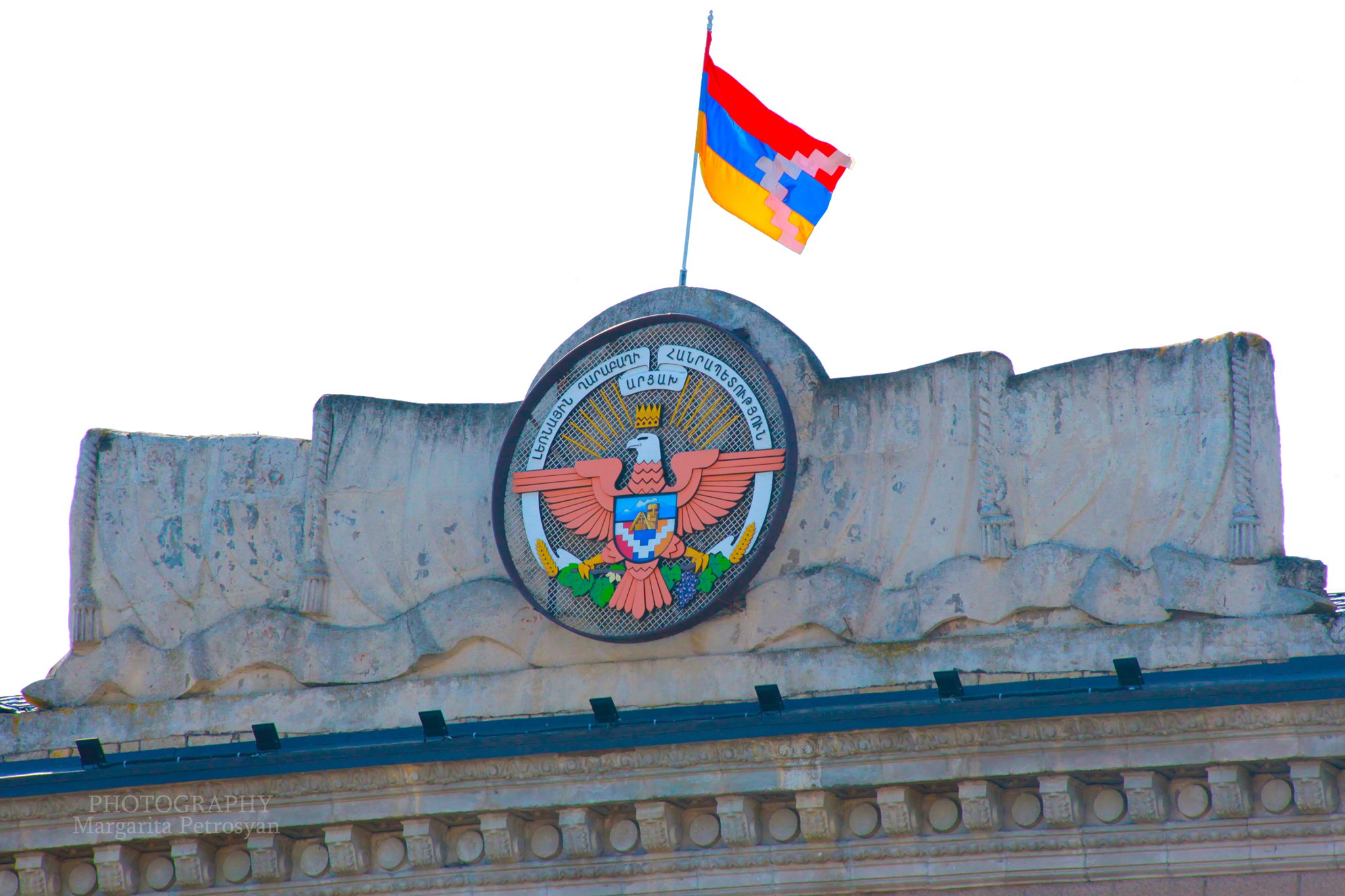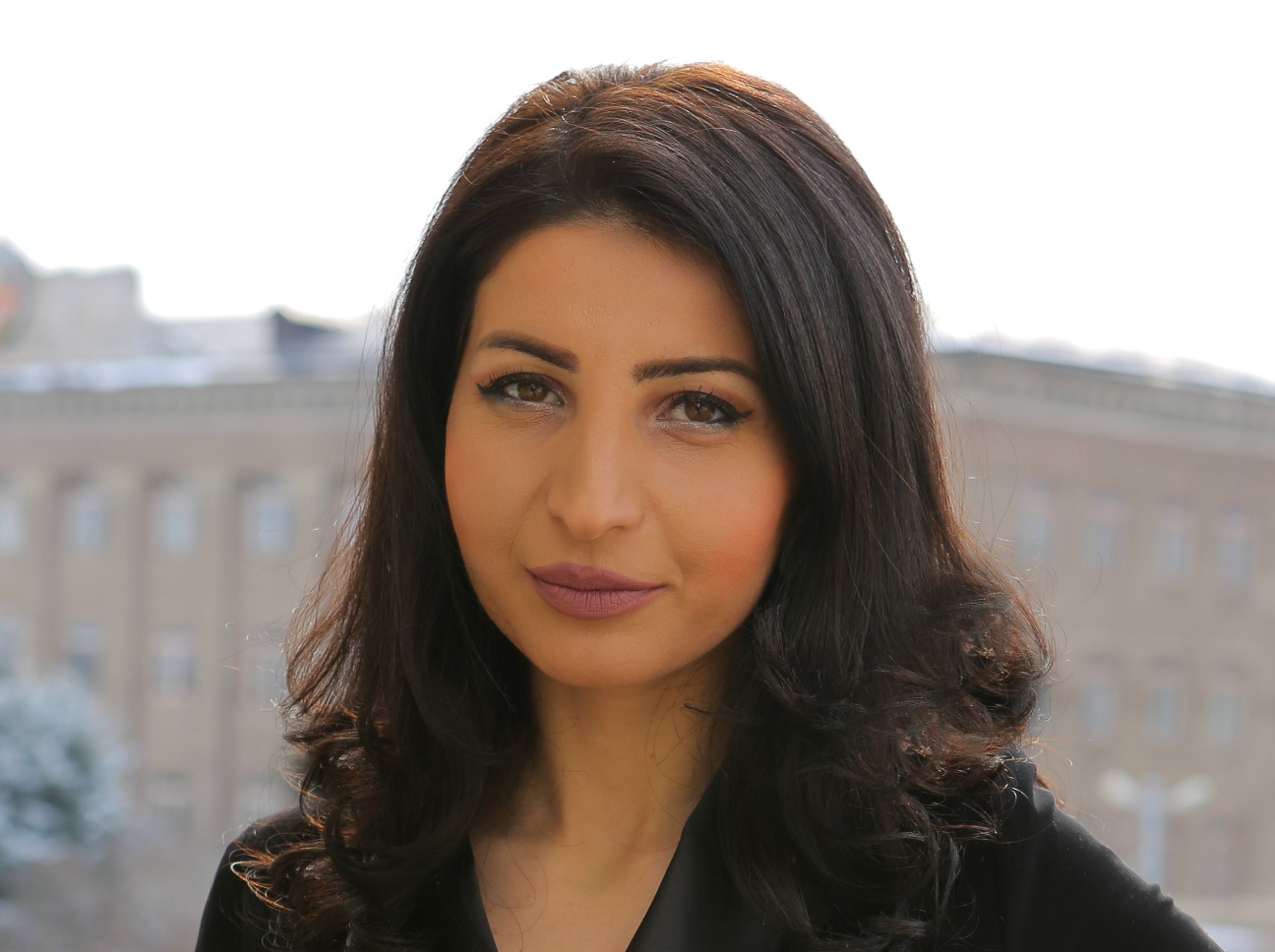
The international mediators involved in the Azerbaijan-Karabakh conflict settlement process ⎯ the OSCE Minsk Group Co-Chair countries ⎯ have repeatedly underscored that no agreement can be reached without the consent of the people of Nagorno-Karabakh and that the issue of restoring the full format of negotiations with the participation of Artsakh depends on the will of the sides.
As a direct party to the conflict, the Republic of Artsakh insists on its participation throughout all stages of the negotiation process maintaining that no settlement is feasible without its consent.
As to Yerevan, Armenian Prime Minister Nikol Pashinyan has stated at the very beginning of his tenure that Artsakh should return to the negotiating table.
Thus, the problem lies in the Azerbaijani approach, which tries to present the Republic of Artsakh and the community of Azerbaijani refugees as an equal party to the conflict.
Needless to say that in the context of the Azerbaijan-Karabakh conflict, the issue of refugees is always unilaterally presented by Azerbaijan, deliberately neglecting the existence of thousands of Armenian refugees forcibly displaced from the Shahumyan region and the occupied territories of Martakert, as well as those who escaped the genocide in Sumgait, Gandzak and Baku. These people also are regarded to be refugees who, unlike the Azerbaijani refugees, have not received any material compensation to this date, even before addressing the obligation of compensation for the adverse moral suffering inflicted upon them.
There is no need to examine in this piece the manifestation of anti-Armenian hatred and the fact that representatives of this very community have participated and continue to participate in hostilities and blockades inflicted by Azerbaijan upon the Artsakh Republic.
No one denies the reality of Azerbaijani and Armenian refugees. But, the subject of the so-called “Azerbaijani community of Nagorno-Karabakh” that the Azerbaijani side attempts to depict as a discrete political actor requires further elaboration. In the classical sense, a non-profit organization headed by Tural Gyanjaliev tends to Azerbaijani refugees from Nagorno-Karabakh. Similarly, an analogous organization in Artsakh ⎯ “The Union of Armenian Refugees from Azerbaijan” ⎯ headed by Sarasar Saryan attends to Armenian refugees from Azerbaijan and holds the same status as the organization of Azerbaijani refugees from Nagorno-Karabakh. Both organizations naturally represent the interests of respective refugee communities. However, efforts to regard and listen to the Azerbaijani organization only, as recently noted in statements by the OSCE Minsk Group Co-Chairs, demonstrate an illogical and biased stance. It is even more ludicrous and outlandish to draw parallels between the Azerbaijani organization of refugees and the Republic of Artsakh.
If the Azeri side has, in essence, distorted the substance of the problem to the extent of articulating such an aspiration, the OSCE Minsk Group co-chairs who visit Artsakh and meet with elected officials of the Republic of Artsakh, should be in a position to clarify the relevant nuances to the Azerbaijani side. Moreover, the Azerbaijani refugees from Nagorno-Karabakh participate in elections in Azerbaijan that shape the local governance configuration just as the Armenian refugees from Azerbaijan do through their respective participation in the elections of the Republic of Artsakh. Consequently, the President of Azerbaijan who represents his constituents also represents the Azerbaijani refugees in the same fashion that the President of the Artsakh Republic represents the Armenian refugees just as he represents the people of Artsakh. Correspondingly, the President of the Republic of Artsakh is an equal counterpart of the President of Azerbaijan. The reasons for dissenting from the Stepanakert-Baku-Yerevan format of negotiations and supporting the Stepanakert-Refugee Organization-Baku-Yerevan format are twofold: (a) the Azerbaijani refugees from Nagorno-Karabakh do not have confidence in the elections in Azerbaijan and do not trust their President Ilham Aliyev; and (b) such positioning is yet another destructive maneuver by Azerbaijan that again demonstrates its unwillingness to solve the conflict through negotiations.
There is merit in mentioning that to this date two important documents have been signed aiming at conflict resolution, and both agreements were reached in the trilateral Stepanakert-Baku-Yerevan format (i.e., the 1994 Agreement on the Ceasefire; and the 1995 Agreement on Strengthening the Ceasefire). Evidently, Azerbaijan knows the effective and shortest way to reach agreement, and we believe it is appropriate to constantly remind them and the international community about that.



By the logic the author describes Armenian refugees from Azerbaijan should execute their voting rights within Armenia and not NK because NK territorially belongs to Azerbaijan and not Armenia. Besides, the same logic reinstates the fact that Azerbaijani refugees from NK are eligible to vote in NK because they are from Azerbaijan and NK is Azerbaijani land.
Quoting the author: “No one denies the reality of Azerbaijani and Armenian refugees.” OK. Then, by the logic of the author, Azerbaijani refugees are part of the “people of Artsakh”. Because they have escaped from Nagorno-Karabakh. Simple logic. Then how can you make any decisions, including on statehood, with a huge part of your “people” missing??? Return them home and resettle them, provide them equal rights – then talk about your “democratic approaches” and “statehood” and “self-determination”. There is a reason why no one recognizes any entity that wants to be a state – based on the violence of one ethnic group against the over.
The format of the Nagorno-Karabakh conflict settlement has long been known to everyone. It is Armenia that is a party to the conflict, which bears international legal responsibility for the use of force and military occupation of the territories of Azerbaijan. Based on the norms and principles of international law, the UN Security Council resolutions and principles of the Helsinki Final Act, the political and legal foundations of the step-by-step settlement of the conflict were established and adopted by the international community. This envisages the withdrawal of the Armenian troops from the occupied territories of Azerbaijan, the return of the Azerbaijani refugees and internally displaced persons, including the Azerbaijani community of Nagorno-Karabakh to their native lands and the autonomous co-existence of the Armenian and Azerbaijani communities of Nagorno-Karabakh within the borders of Azerbaijan.
Azerbaijan must understand that the logicial and true answer to third so called “Nagorna karabagh” question is: *ARTSAKH*
Azerbaijan must understand that; the logical and true answer to their so called “Nagorna karabagh” question is: *ARTSAKH*
As for a solution acceptable for Azerbaijan, it consists in restoring the territorial integrity of Azerbaijan recognized by the whole world and returning refugees and internally displaced persons to their original lands, including Nagorno-Karabakh. This is consistent with Security Council resolutions and the Helsinki Final Act.
Abbas do you know the entire Armenian Highlands were part of Armenia?? I wonder where was Azerbaijan at that time and how this newly oil kingdom created, where the same name does exist in Iran as part of Iran’s Azarbaijan! By the way, the security Council voted by misinformed Islamic nations only (minus Iran)!
https://www.peopleofar.com/2013/08/17/new-discoveries-on-armenian-highland/
Not only misinformed but also paid-off handsome petrodollar bribe too.
Azerbaijan spends billions of it’s oil wealth on misinformation about Artsakh, falsification of true history, fabrication of absurd claims and organized Armenophobia, Azerbaijani government is carrying out anti-Armenian policy inside and outside the country, which includes propaganda of hate toward Armenia and Armenians and the destruction of Armenian cultural heritage.
How twisted and absurd is this so-called country of Azerbaijan in a man-ner which it is trying to portrait itself as a legitimate and ancient-country. This so-called country of Azerbaijan is against all science, logic, History, and norm of civilized world and in favor of emotions, elusion and fantasy.